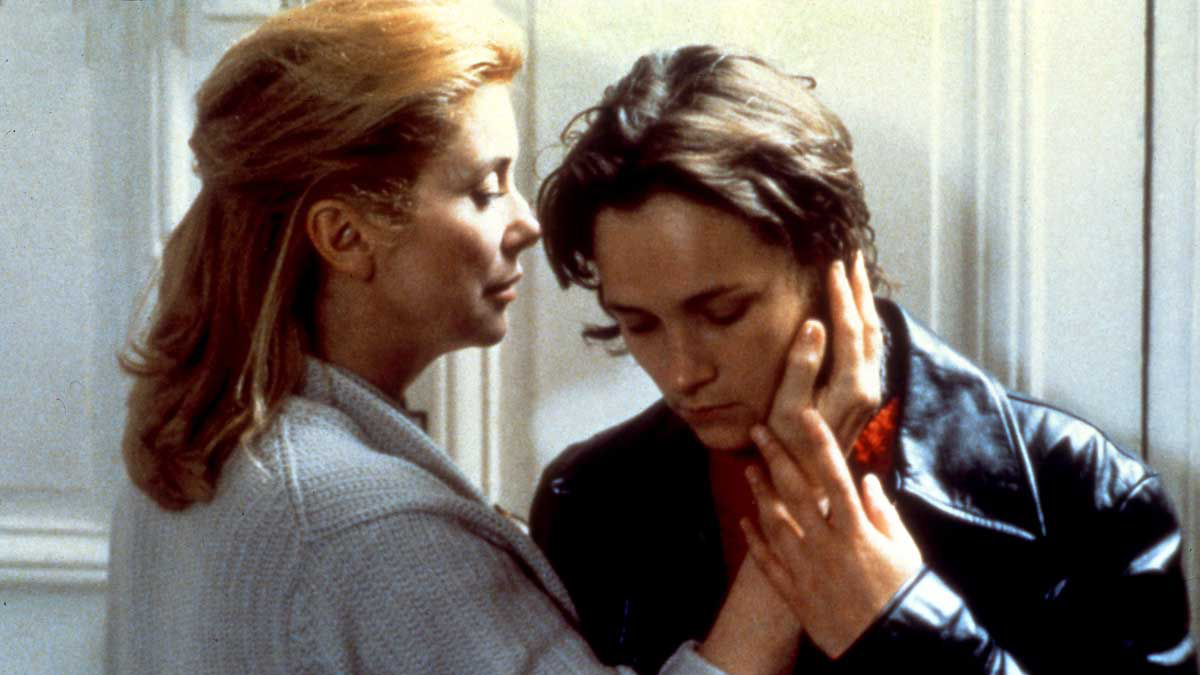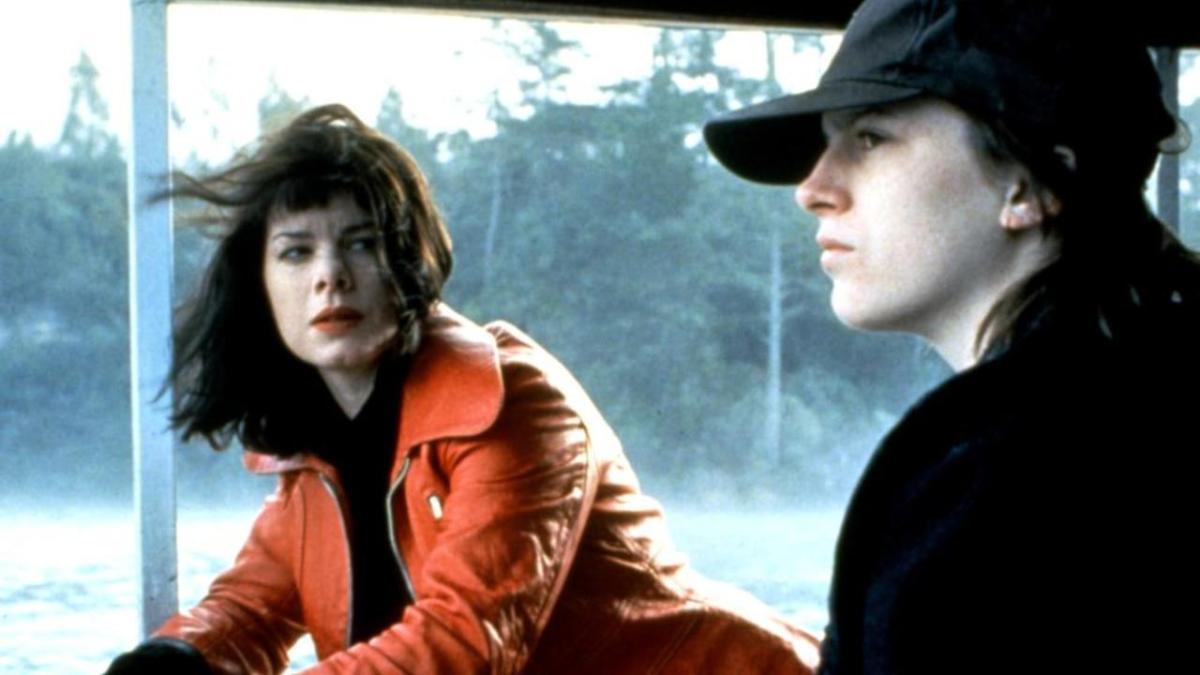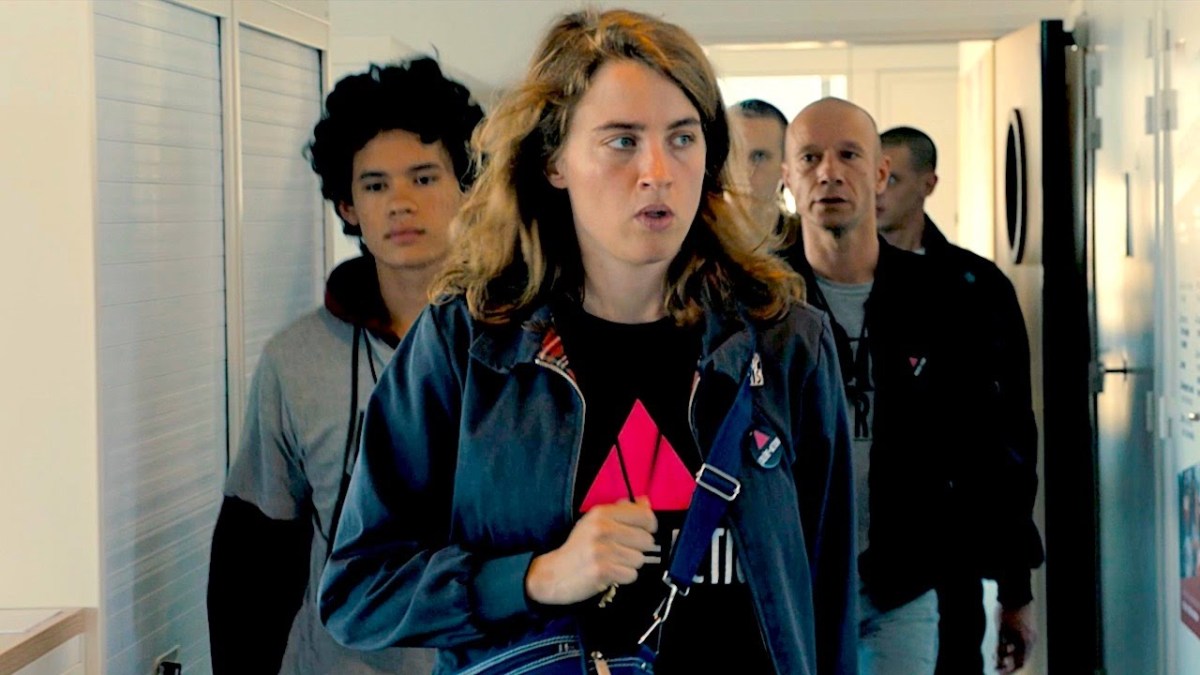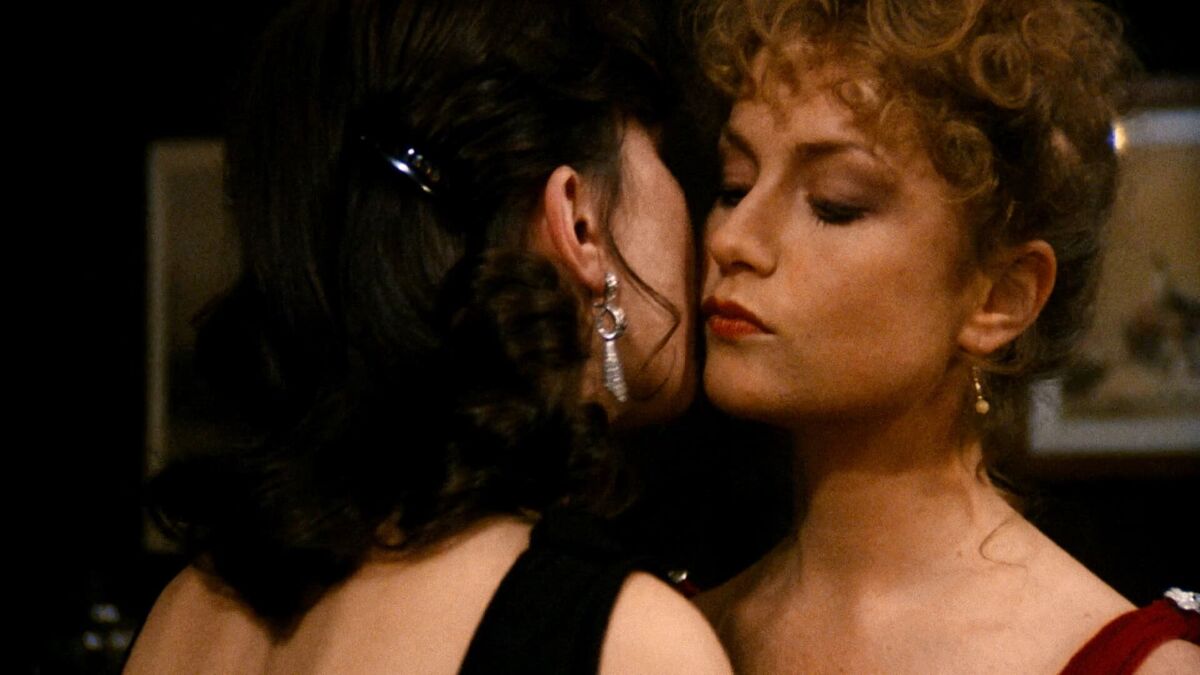One of the last Sunday mornings I showed up for altar server duties, a young, newly-ordained priest was giving that morning’s mass as part of a trial-run to see if he’d be the one to replace our parish priest. Aside from meeting this Father, the time before mass was fairly normal: The rest of the altar servers and I showed up an hour early to make all the necessary preparations, we put on our albs, and Travis and I fought for 10 minutes about which one of us would take on the coveted responsibility of ringing the bells. Then, mass proceeded as it always did — that is until we reached the homily. Perhaps emboldened by the liberal-appearing atmosphere of South Florida or maybe hoping he’d finally find a parish with similar views as his own, the new priest encouraged the congregation I’d known since I was born to welcome gay and lesbian people into the arms of the Church just as they are, without forcing them to change.
No one there knew, not even the old parish priest who took my confession every two weeks, that I was harboring a lascivious secret. For two years prior to the new priest’s homily, I’d spent every moment I had alone in my family’s living room fast forwarding our VHS of Alien to the part where Sigourney Weaver’s Lieutenant Ripley strips down to nothing but too-low white panties and a white tank top that I wanted so badly to be see-through. I wasn’t sure I was I gay because I barely understood what that meant, but I knew I wanted her in the same way my middle school friends wanted the Backstreet Boys and Freddie Prinze, Jr. And I knew that, at least once a week, I was sinning boldly and unrepentantly right in front of God.
As the new priest delivered his message, I kept my composure. I didn’t want anyone to know I felt entirely relieved — even justified — about who I was becoming and the deviant behavior I couldn’t stop myself from repeating.
When mass ended, I stayed quiet as the other altar servers speculated over whether or not the new priest was a “fag” while we disrobed and cleaned up the sacristy. In the parish hall where they served coffee and donuts for free after mass every Sunday, I listened as members of the congregation gossiped about the new priest. They questioned his authority and his interpretation of the scripture. They made comments about the way he talked, the way he walked back and forth across the altar as he spoke to us, the way his smile never seemed to diminish, and how he held his coffee. They joked that he “must be Dutch” (because at the time, the Netherlands was the only place where same-sex marriage was legal). They said he wasn’t old enough or experienced enough to serve as our parish priest. They asked each other what God would make of his homily.
I went home and told my mom I wasn’t going to sign up for serving duties anymore after I finish out my schedule at the end of that month, and she was too delighted by the fact that she didn’t have to wake up extra early anymore to ask me why.
It wasn’t the first time I heard openly anti-gay comments at church. But I believed the new priest when he said it was possible we were misunderstanding what scripture was trying to tell us, when he said we were all God’s creations and it wasn’t up to us to decide who was made correctly and who wasn’t. Not just because it excused the intimacy I was sharing with Lt. Ripley when I had the house to myself, but because something within myself was begging me to trust that my nature was fully in God’s purview. And the new priest’s homily finally granted me permission.
The new priest never got invited back to deliver another homily, and I spent the next decade distancing myself from the Church, making jokes about my (minor) religious trauma to my friends who share similar experiences. I became the kind of person that my congregation feared most.
When we first meet the Gemstone siblings in the very first episode The Righteous Gemstones, they are grieving the recent loss of their beloved matriarch and verbally ripping each other to shreds. In the show, the Gemstone family has a significant presence in the South Carolina Evangelical Christian community, throughout the U.S., and around the world. The patriarch Eli (John Goodman) and his late wife Aimee-Leigh (Jennifer Nettles) built their ministry, televangelist, and megachurch empire from nothing while raising their three children, Jesse (Danny McBride), Judy (Edi Patterson), and Kelvin (Adam Devine). Aimee-Leigh was hoping for children who were as equally devoted to the Lord as she was, but they ended up becoming the embodiment of some of the greedier tendencies Eli tries so hard to tamp down. Before we’re even shown exactly what makes the siblings such “bad” Christians, their brief interactions with each other prove they are some of the most hilariously entitled and egotistical characters ever put to screen.
Jesse is the clueless yet cocksure older brother who, with the help of his “smoke show” wife Amber (Cassidy Freeman), is priming himself to become his father’s “rightful” successor despite not having the leadership qualities (or intelligence). Judy is a stereotypical middle child constantly vying for equal responsibility in the family’s empire, but she’s also overtly sexual, can “rip” better than her two brothers ever can, and has a dirtier mouth than all of the characters combined. And Kelvin, the youngest Gemstone, doesn’t quite know where he fits in with his siblings or with his parents’ church at large though he’s certain he deserves to reap the benefits of the Gemstone name.
In that first episode, Eli, Jesse, and Kelvin are returning from a mission trip to Chengdu, China where they managed to baptize 5,000 people even though they completely screwed up the baptism event. It’s obvious from the beginning, especially to knowing eyes, that something is off about Kelvin, something is a little fruity about him even, but no one in his family seems to pay much attention to that. From their private airport, Judy and a caravan of security guards take Eli, Jesse, and Kelvin back to the Gemstones’ sprawling compound where Eli and each of the siblings has their own gigantic estate. At Eli’s estate, he’s greeted by a team of housekeepers and cooks who seem genuinely happy he’s home. Jesse arrives at his estate and is met at the front of his house by Amber, who embraces him, congratulates him on the success of the mission trip, and calls him her “King.”
Kelvin returns to what we think is an empty home with a look of sadness on his face. As he’s settling in to being back, he’s startled by Keefe (Tony Cavalero), an ex-Satanist who Kelvin converted to Christianity and subsequently took under his wing. From the moment the two set eyes on each other, there’s palpable tension between them. Kelvin and Keefe have a brief conversation, then as Keefe is explaining he needs to go home to soak in a “very hot” tub for a while, Kelvin tries to convince him to stay to play video games and eat Pixie Stix all night.
Knowing and loving Danny McBride’s other HBO projects, Eastbound & Down and Vice Principals, I expected this church family story would, at some point, be imbued with as much homoeroticism as McBride’s other work. But I can’t say I entertained the possibility of him and his showrunners writing a queer character into any of his shows, especially this one about the absurdity and hypocrisy of bourgeois, Southern Evangelical Christianity. As Kelvin and Keefe stumbled over their words and then awkwardly hugged as they said “night night” to one another, I was gripped with curiosity and a stream of emotions — both celebratory and anxious — about what they might have in store for Kelvin and Keefe in the future.
Aside from the fact that they’re both Christian religions, Catholicism and Evangelicalism are more culturally and theologically dissimilar than they are alike. Catholicism, for its part, seems to sometimes forget there’s also an Old Testament in the Bible. It focuses heavily on the role of Mary in Jesus’s life and his eventual sacrifice and has a huge pantheon of saints who work as spiritual messengers and providers to whoever invokes them. Within Catholic lore, it’s the only church that was actually started by Jesus Christ himself before his death when he told his twelve apostles how to carry on his work and appointed Saint Peter as his successor. Meanwhile, Evangelical Christianity is the culmination of several theological movements that were sparked by the Protestant Reformation of the 16th century. Although they share a deep commitment to hierarchy and church law, the structure of the Catholic Church feels more governmental in its approach while Evangelicalism is organized like a series of intramural sports leagues following their own rules and regulations wherever they are. Regardless, they do share one important belief: Acting on homosexual desires is one of the gravest sins a person can commit.
In my household and in the Catholic communities we belonged to, anti-queerness (and anti-transness) wasn’t a pillar of our Christianity in the way it’s become the number one issue for far-right Christo-fascists since 2016. Queerness was discussed in my Catholic catechism classes and, eventually, in my Catholic high school theology classes occasionally, though it was mostly brought up as a reminder that being queer wasn’t part of “God’s plan” for us. But that knowledge, combined with the often open and excusable homophobia of the early 2000s, was enough to keep a specter of shame and guilt hanging over me as I got older and realized I probably wasn’t going to be able to keep my burgeoning queer sexuality contained. The new priest’s homily offered me another perspective, but it would take a few more years before I could fully integrate his worldview into my own.
For the first two and half seasons of The Righteous Gemstones, that specter haunts Kelvin in an even more intense manner than I experienced. Being a Gemstone means you’re expected to uphold the values — at least publicly — of Evangelicalism, and Kelvin knows this. Similar to what I experienced, anti-queerness isn’t explicit in the show save for a few times where people are homophobic and quickly reprimanded for it, such as whenever Jesse’s son Pontius (Kelton DuMont) uses the word “faggot” and is quickly reminded that Jesse has “homosexual friends” who wouldn’t appreciate the use of that word. Anti-queerness isn’t present in their sermons or in their private discussions about religion as a family. No one is telling Kelvin he has to stay in the closet. And yet he knows from growing up in the Evangelical community his parents constructed that he doesn’t have the choice to explore his feelings.
This approach is not particularly shocking to anyone who’s engaged with McBride’s work in the past. But given the state of Christianity in this country over the last 10 years, the choice to present Kelvin’s dilemma absent of any explicit anti-queerness from his family and community gave the show an opportunity to interrogate (and satirize) this issue in a unique — and often heartening — way over the course of its four seasons.
Throughout the majority of the first three seasons, we watch as Kelvin hilariously and misguidedly attempts to figure out his role in the family’s business and to find outputs for his ever-intensifying crush on Keefe. The first season focuses heavily on getting Jesse and the rest of the family out of harm’s way from a blackmailing operation, but throughout, Kelvin’s ability to assist Jesse is heavily dependent on Keefe being part of their plans. It solidifies Kelvin and Keefe’s relationship in ways only serious family drama can. Keefe’s integration into the family — as Kelvin’s closest friend, of course — is much smoother than Judy’s fiance BJ (Tim Baltz). I wouldn’t call Judy and BJ’s relationship heteronormative but in the eyes of the Gemstone family, it’s more appropriate than a queer relationship and yet they never treat BJ with the kind of respect they do Keefe. Even if they are a little suspicious of what Kelvin and Keefe’s closeness might mean, they don’t interrogate him or chastise him for it.
When the second season begins, something has shifted in Kelvin and he seems truly ready to stake his unique claim in the Gemstone empire. His new project “The God Squad” — a weight-lifting focused ministry that pokes fun at the tenets and traditions of Muscular Christianity — gives him the opportunity to be in charge of a ministry he “invented” and to hang out scantily-clad with Keefe and other jacked men all day. As “The God Squad” grows larger and takes on more dedicated members, the power of running this ministry and the constant repression of his feelings for Keefe turn him into an absurd caricature of himself. This culminates in him having to prove his strength to the Squad (in the most ridiculous way possible) and realizing his and Keefe’s efforts are more successfully utilized in the Youth Ministry where they began.
That’s where we pick up with Kelvin and Keefe in the third season: running the Youth Ministry and an anti-porn, anti-premarital sex project called “Smut Busters” where they go to local sex shops to buy out all their products and have them destroyed. Here again, we see Kelvin and Keefe coming up with schemes to try to perpetually prove their “innocence” — how can anyone think they’re gay (and more specifically, gay for each other) when they’re always trying to prevent people around them from acting on “impure” thoughts? Much like The God Squad, the Smut Busters project comes to an immediate halt after parents of the young people in the Youth Ministry express concern for what Kelvin and Keefe are doing and confront the men about some “rumors” that have been swirling around regarding their relationship. This is the first time in the whole series either of them are shown their facade isn’t working as well as they think it is. And given that it’s the parents of their “students” leading the charge here, it’s also the first time we see the series calling direct attention to how Christianity is being weaponized in our real world.
The Smut Busters project is canceled and it leaves Kelvin and Keefe in limbo, trying to make sense of how they’ve failed to hide themselves and where they’re supposed to go from there. At the end of season three, Kelvin and Keefe finally give into the feelings by sharing an impassioned kiss in front of the Gemstone siblings and their partners. And the family reacts not with disdain, disgust, or anger, but with brief, celebratory glee. By the end of the series finale, Kelvin and Keefe have taken their rightful spot among the rest of the couples on the show when they receive a warm welcome as they join their family on the compound to take turns driving Jesse’s monster truck. Eli gives them a thumbs up, the final seal of approval the two of them wished for so badly, and Aimee-Leigh’s ghost looks in on everyone with a smile on her face.
There are two actual years and seemingly two TV years between where season three leaves off and where season four begins. Kelvin and Keefe are, of course, still together, only now they’re running a ministry called PRISM, specifically designed to help integrate LGBTQ+ people into the Gemstone’s version of Evangelicalism. PRISM, unlike so many of the other Gemstone family church businesses, is actually raking in cash through their PRISM-edition Bibles and high levels of attendance at their services. For the most part, it appears that the rest of the Gemstone church community has embraced Kelvin and Keefe’s relationship, as well as their work with PRISM. There are no protests, no snide comments, no demands to stop the forward-thinking progressivism of the church. In fact, Kelvin is nominated by a society of regional Christians for a yearly prize called “Top Christ-Following Man of the Year.” And this is where this uproariously funny, mostly unserious show does some of its most important work.
Given the success of PRISM and Kelvin’s nomination, you can imagine how little the Evangelical community-at-large, outside of the Gemstone churches, wants to ride this wave of change happening right in front of them. A rival megachurch pastor, Vance Simkins (Stephen Dorff) — who, funnily enough, also gives off closeted Christian vibes — simply can’t handle this new, more open-minded version of Christianity the Gemstones are selling, and he takes it upon himself to try to bring down Kelvin. He embarrasses Kelvin on TV during a “Top Christ-Following Man” debate, claims that Kelvin’s nomination is an example of tokenism, and then takes his condemnation even further by insisting that Kelvin shouldn’t have been nominated in the first place, what with homosexuality being against God’s law and all.
If these events were to happen in the reality of 2025, I’d imagine they’d go something like this: Kelvin’s family would insist he drops out of the race, he’d be forced to go back into some version of the closet, and PRISM would come to a swift end. But in the Gemstones’ world, the opposite happens. Kelvin’s siblings — particularly Jesse, who is forced to overcome his jealousy regarding Kelvin’s nomination in the first place — rally around Kelvin, insist that he stay in the running, and take Simkins down once and for all. On the nominees’ “Night of Testimony” that leads to open voting by the faceless regional Christian community of South Carolina and beyond, Kelvin delivers a testimony that brought me right back to the feelings I had when I heard that new priest’s homily:
Truth. You see, that’s actually what I want to talk about tonight. See, I was the youngest member of my family to become a preacher…at age 12. They said I was special, but I just felt different. I spent my whole life trying not to be. Until I realized…God sees the real me. In fact, he made the real me. And if the real me is good enough for God, then it’s good enough for everyone. Different is awesome, the proof of God’s work, the range of his talents. So I came here tonight not to grovel for accolades but to tell the truth about who I am and what I’m about. My name is Kelvin Gemstone. And I’m a… a different kind of man. A beautiful man. A gay Top Christ Following Man. And if that’s not good enough for this award, then I don’t need it.
It’s an incredible moment for the series, only bested by the series finale concluding with a beautiful wedding ceremony on the family’s compound for Kelvin and Keefe, with Eli officiating their union in front of everyone they love and, really, God himself. But before we even get there, both Jesse and Eli manage to harass and embarrass Vance Simkins out of their Christian community altogether — a defeat reminding us that the real Christians, the real followers of Jesus’s teachings, shouldn’t and can’t allow the dogmatic bigots to keep their stranglehold over the word and will of God. With these final parts of Kelvin and Keefe’s storyline, McBride and his team provide an exhilarating funhouse mirror to the way Christianity is operating in our society. Kelvin and Keefe’s story could’ve gone anywhere and the jokes still would’ve flowed. But it didn’t, it went here, to a place of complete acceptance and — more importantly — unfettered jubilation in the face of a vocal and powerful minority of people who wish nothing more than for queer and trans people to disappear out of public life forever.
In a show about how “bad” and hypocritical Evangelical Christians (and Christians, in general) can be when they’re given as much power and authority as the Gemstones, McBride and his team made bigotry the ultimate sin. This was the one infraction in the eyes of God that you can’t easily be forgiven for and it helped bring to life an imagining of the way things could and should be in the church and in our culture. Like the new priest I met shortly before I stopped going to church forever, The Righteous Gemstones uses Kelvin and Keefe’s relationship to implore everyone to think more broadly about what it looks like to truly be faithful. You can have your God, you can have your church, but you should listen to him, too. You should love everyone as he loves you. You should trust that he knows exactly what he’s doing. You should believe we’re all here because he made us this way. If what the Bible says is true, you won’t get to heaven any other way.
All four seasons of The Righteous Gemstones are now streaming on Max.
















































RIP to anyone who decides anatomy of a fall on a gay data solely based on the fact that it’s on the list XD that being said Portrait of a Lady on Fire changed my relationship to art so, you are correct.
Nothing better for a gay date movie than flirting with a woman and then (not?) killing your husband.
love Blue is the Warmest Color positioned as the ultimate vers
Hi Drew,
I’ve been reading autostraddle for a longtime and never commented on anything before, but reading that a movie from Jacques Doillon is in this list without any warning whatsoever was a bit alarming to me.
As a French cinephile working in the industry, that reads the news, there has been a huge opening of speech for the last few months. The actress Judith Godrèche – but also others, like Isild Le Besco – started openly speaking for the 1st time about what they lived as child-actresses who have been seriously abused by directors. One of those directors is Jacques Doillon, you can find a Variety article about it:
https://variety.com/2024/film/global/judith-godreche-rape-complaint-jacques-doillon-1235902019/
It would be much appreciated if you didn’t “promote” his work. I’m not saying this in an accusing or condenscending way, as I know that it’s kinda recent news and maybe too niche to reach everyone in the world. But it feels like there is a huge French cinema- and others – metoo comeback since the beginning of the year, and it has been both apalling (to see any form of abuse so systematically anchored) and amazing (to watch – mostly women – speak openly about what they’ve kept hidden for so long and how it feels like most people want change). There is really no more place for directors like Jacques Doillon in any “top” list whatsoever, but especially on a website that talks so much about women rights, film culture etc.
I had no idea, so thank you for letting me know! For what it’s worth this isn’t a top list, but a ranking of every lesbian movie to play in competition at Cannes. Since the movie is at the bottom, safe to say I wouldn’t promote the film even separate from the director’s violent behavior. But I’ll still add a note!
Thank you Drew! I understand it’s a ranking and trying to be exhaustive. But I’m actually in Cannes right now and it still such a vibrant subject that I had to let you know.
If you want to add another one, I believe Heart + Knife was in Official Selection as well? which is probably much more enjoyable either way :)
Omg I can’t believe I forgot Knife+Heart! Thank you!
Seeing them in a shared list like this has me thinking; would I have put The Handmaiden above Carol? Even though i LOVE Carol? Maybe!
Excited to watch my way thru the top ten or so!
Paris, 13th District
Julieta
Shrek 2 (jk)
I forgot about the lesbianism in Julieta! I love that movie.
And I’ll be sure to watch Paris, 13th District ASAP!
Oh, and The Divide/La Fracture (2021) is about divorced lesbian exes fighting during a yellow vest demonstration
Some more Cannes competition titles with lesbian elements:
Beyond the Hills
Bacarau
Oh, Mercy!
You’re the best!! Thank you!!
I shall be updating this as I watch.
Thank you again for all your suggestions! Super helpful for this year’s update. The only one I couldn’t watch was Oh Mercy (for some reason it’s not currently available in the US or Canada??) but I’ll try to track it down before next year.